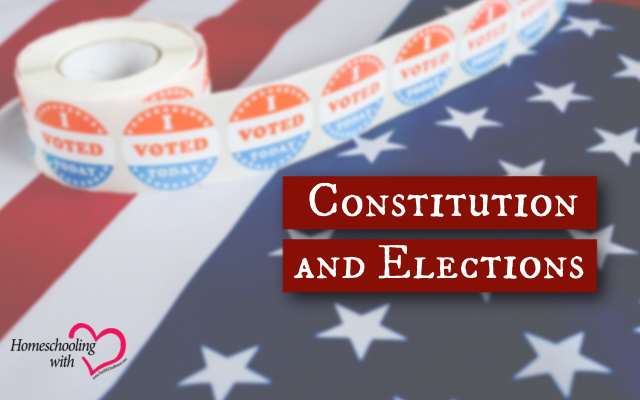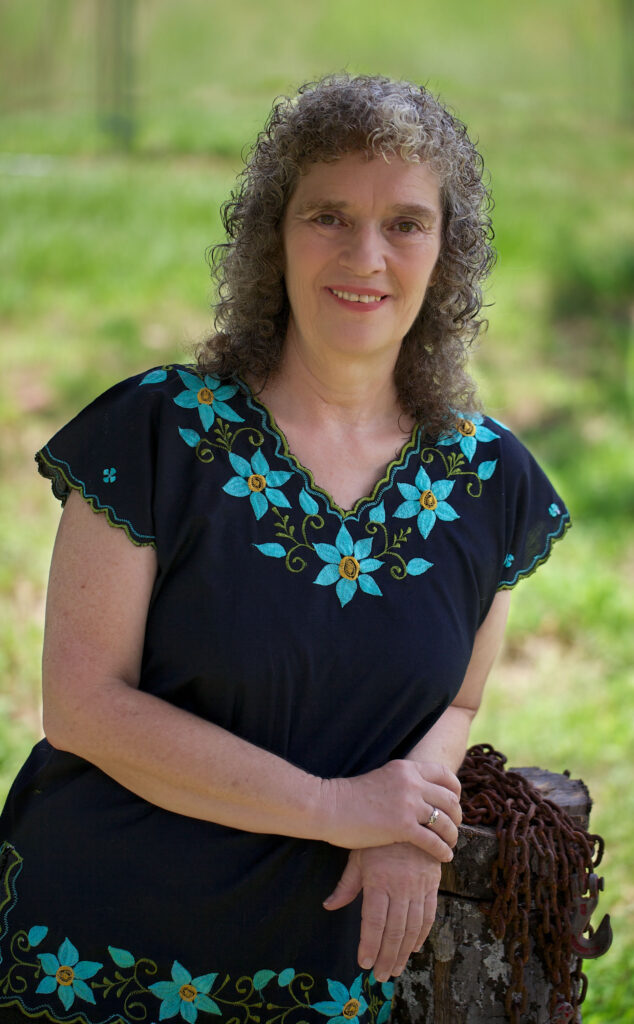Constitution and Elections


What better time to teach about the election process than during an election year?
There is more to elections in the United States than just casting a ballot. Our Constitution has details about national elections. Plus, each state has certain rules to govern the conduct of elections. That’s not to mention campaigns and political parties.
In many states, the secretary of state’s office handles election procedures. Most states’ websites have detailed information about voting. Some states provide election lesson plans. A list of secretaries of state websites can be found at https://www.liveabout.com/secretary-of-state-websites-1201005.
Here’s a list of websites with information and lessons plans to help you teach your children about the Constitution and elections.
- Constitution
As they say, let’s begin at the beginning. To understand the election process, it’s important to know what the Constitution says and the framers’ reasoning. Constitution Annotated has the sections of the Constitution pertaining to elections. The annotations include a history behind the specific sections. https://constitution.congress.gov/browse/article-1/section-4
- Electoral College
The Electoral College is misunderstood by most adults, primarily because we weren’t taught the procedure or rationale. The procedure of the College is a part of the Constitution we all can use a few lessons on.
Study.com has complete lessons plans suitable for upper elementary, middle grades, and high school. https://study.com/academy/popular/electoral-college-lesson-plan.html
The National Archive also has several resources to learn about the electoral college, including:
- The Electoral College https://www.archives.gov/electoral-college (Scroll to the bottom of the page for more details.)
- Lesson plans https://www.archives.gov/electoral-college/links#teaching
- Tally of the 1824 Electoral College gives background information about why the writers of the Constitution set up the college. http://www.archives.gov/education/lessons/electoral-tally/
- Elections:
The process of selecting office holders begins at the local level. It involves committees, primaries, caucuses, and conventions.
- Bridgeway Academy has great Election Day Lesson Plans for Homeschoolers – Bridgeway (homeschoolacademy.com).
- Ben and Me—Election Unit Study
Marcy Crabtree provides an election unit study along with a lengthy list of resources here. http://benandme.com/2012/10/elections-unit-study.html.
- The Homeschool Mom
- Elections A to Z Notebooking Unit https://www.thehomeschoolmom.com/homeschool-lesson-plans/elections-a-to-z-unit-study/
- From historical election results to political parties, Resources about Elections provides election information that can be used for research by older students. http://www.thehomeschoolmom.com/homeschool-lesson-plans/elections/
Each political party has a method for selection of candidates. Teaching for Democracy Alliance provides information about how the two more well-known political parties select candidates. https://accounts.closeup.org/cuicdocuments/CI%2042%20U.S.%20Elections%20E-Chapter.pdf
- Political Parties
While two political parties are familiar, in the United States there are more than 200 different parties. Each state has specific rules for a party appearing on the ballot. Ballotpedia has a list of political parties (https://ballotpedia.org/List_of_political_parties_in_the_United_States) along with information about ballot access in each state. https://ballotpedia.org/Ballot_access_for_major_and_minor_party_candidates
The Library of Congress has information about all the topics listed above. https://www.loc.gov/classroom-materials/elections/presidential-election-process/
After learning about elections, field trips to local election offices, campaign headquarters, or secretary of state offices will enhance what has been learned. Students will also be able to ask questions and have discussions with people involved with the election process.
Mock elections are another method to reinforce lessons. A mock election is defined as “an election for educational demonstration, amusement, or political protest.”1 These can be coordinated with other families or your homeschool group.
- Replace with Free Mock Election ideas here. Mock Election Teaching Resources | Teachers Pay Teachers
- FairVote has an outline for a group mock election. https://archive3.fairvote.org/learning-democracy/lesson-plans/active-civics/mock-elections/
Many states have state-wide mock elections for students. Check the secretary of state website in your state for more information or search the internet for “mock election ideas.”
On the day you vote, highlight the importance of voting. Acknowledge it may be inconvenient while emphasizing the importance of each individual’s vote. Some states allow children to enter the voting booth with their parent. If this is the case, your child will become familiar with the process in your area. If this is the first election your eighteen-year-old is participating in, make a celebration of it. First time voting is a rite of passage for many young people. Few states allow photography inside the polling place, but you can take a picture outside the polling place. A celebratory cake may be in order.
Don’t be surprised if you find out something about electing leaders for our towns, states, and country you didn’t know before. Learning about elections is truly a family project.
- “Mock election.” December 22, 2021. Wikipedia. https://en.wikipedia.org/wiki/Mock_election
{Note: Most websites in this article refer to the 2020 elections. The most recent data is from that year.}
Disclaimer: Some of the resources have political content. The information provided is for educational, not political purposes. The Old Schoolhouse, Homeschooling with Heart, and the author Susan K. Stewart do not endorse or support such content.

Susan K. Stewart, Managing Editor with Elk Lake Publishing, teaches, writes, and edits nonfiction. Susan’s passion is to inspire readers with practical, real-world solutions. Her books include Science in the Kitchen, Preschool: At What Cost?, Harried Homeschoolers Handbook, and the award-winning Formatting e-Books for Writers. Her latest book, Donkey Devos: Listen When God Speaks, was released last summer. You can learn more at her website www.susankstewart.com. Join Susan and other homeschoolers at Harried Homeschoolers Facebook group.
—-
Science in the Kitchen https://www.susankstewart.com/books/science-in-the-kitchen/
Harried Homschoolers Handbook https://www.susankstewart.com/books/harried-homeschoolers-handbook/
Donkey Devos https://www.susankstewart.com/books/donkey-devos-listen-when-god-speaks/
Harried Homeschoolers Facebook group https://www.facebook.com/groups/harried.homeschoolers
































